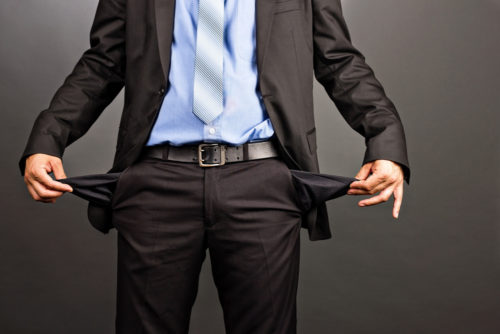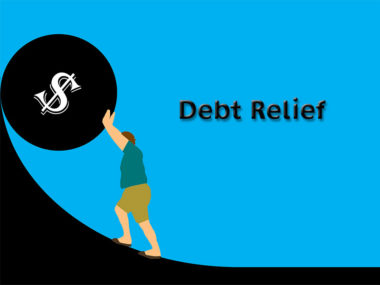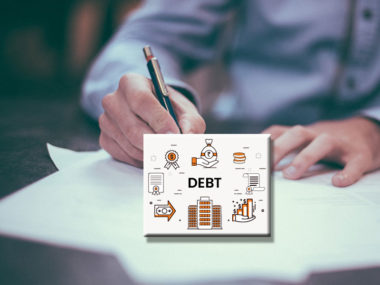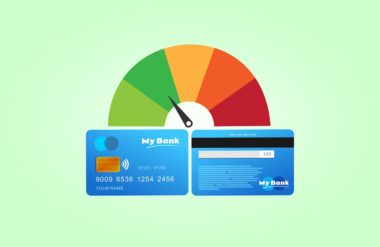Your back is against the wall. Everybody wants your money, but you need it to just stay alive. There is no clean way out of this mess, and you’ve even contemplated faking your own death just to dodge your debtors. Then, a suggestion floats your way, appearing to be the perfect solution– declare bankruptcy.
Before you pull a Michael Scott from The Office and run into a crowded room just to scream out, “I declare bankruptcy!” know that this decision is a huge one to make. It won’t only affect you at the moment; you’ll be dealing with the consequences for a decade. Here is the type of situation you need to be in before you declare bankruptcy.
Table of Contents
All About Bankruptcy and the Consequences
As Michael Scott discovered, declaring bankruptcy is a formal way of informing all of your creditors and the government that you don’t have the money to pay back the debts you owe. It involves significant paperwork and bureaucracy, similar in some respects to the process for applying for a loan. There are two major forms of bankruptcy in the United States, Chapter 7 and Chapter 13.
Chapter 7 bankruptcy is basically saying you can’t pay your debts at all, even in the foreseeable future, and want to start over. When Chapter 7 is filed, you place all of your assets into the hands of the bankruptcy court, to do with as they see fit. Then, if the court agrees you are unable to payback the debts, valuable assets are sold to help pay some of the debt, and the debtor is freed from the debt. Assets that are typically seized include: second homes, second cars, valuable collections of coins or comics, musical instruments and family heirlooms. If you have a secured loan (like a mortgage or car loan) those assets are taken and returned to the lender.
In a Chapter 13 bankruptcy, the lender says they don’t have the money at the moment to pay back loans, but can in the future. You get to keep your assets, like a home or car, but make a legal promise to pay off your debts in three to five years. Then, a plan is established of how much is paid per month to eventually pay off the debts. It isn’t a hard reset on your finances, but more of an extension to pay off the debts.
The biggest consequences of filing bankruptcy is to your credit. Filing for bankruptcy can turn even the best credit scores bad, and it stays on your credit report for a long time. Chapter 13 bankruptcies stay on a credit report for 7 years after they are completed, and Chapter 7 stays for 10 years.
You Owe Money and You are Unemployed
It’s very hard to pay off debts when you don’t have a steady source of income. Especially if you have to pay a mortgage, car payment, credit card debt, and student loans all weighing you down, but no cash coming in.
The situation comes down to this: can you find a job before you can no longer pay back your debts? If you can keep up with your payments for a few months and then find a job, you won’t need to declare bankruptcy. But if you are approaching a longer time without work and can’t meet all of your bills, it might be a potential solution. In this kind of situation, defaults and missed payments are going to be slowly eroding your credit score anyway, making bankruptcy less severe by comparison. So, the longer you go without a job, but still have debts, the more likely declaring bankruptcy is a good move for you.
Buried in Debt
It’s possible to get in so much debt that it becomes impossible to get out of it. Not impossible like, “This would be really hard and require a bunch of sacrifices, so I don’t want to do it,” but impossible like you literally can’t pay off the debt because there is so much, and the interest grows faster than your ability to tackle principal.
This can happen in situations that include medical bills, missing payments on credit card bills, a series of poor financial decisions, or falling victim to predatory lending practices.
In any of these situations, it’s worth visiting with a financial advisor to see if it’s possible to consolidate the debt, or if declaring bankruptcy is the best solution. At the same time, you may want to start looking into credit repair services, so no matter which approach you take, you’re prepared to start working on getting your credit score improved as soon as you get your debt under control.
Divorce and Death
Getting divorced is a field of messy finances. Everything gets split up between the two people involved, including assets and debts. The problem is that splitting the debts doesn’t mean both parties will survive just fine. Each person will have different incomes, and it’s possible they might not be able to handle their exclusive debts.
The same is true if the financial provider in a family passes away, especially if it’s unexpected. A revenue source is suddenly gone, but the debts continue. If plans haven’t been established ahead of time, this might leave a spouse unable to pay debts that they previously could handle.
Debts That Don’t Go Away
Not every kind of debt or financial obligation goes away when you declare bankruptcy. While you are released from many existing debts, some cannot be taken away, while others might still have to be paid if a bankruptcy court decides so.
Examples of debts and obligations that have to be paid include:
- Overdue child support
- Alimony
- Student loans (unless the court decides it would be too hard to the person to pay it)
- Overdue income taxes
- Recent debts from frivolous or luxury purchases
Depending on each person’s case and the court, other debts can remain after filing for bankruptcy. If you fail to list a debt when filing, you’ll still be on the hook for it. A creditor can also fight for a debt to remain if the money was secured through illegal methods, like lying on a credit application.
Is Filing for Bankruptcy Right For You?
Declaring bankruptcy should be a last option to resolving your financial woes. There are other options you should investigate and try before you file for bankruptcy. It has a massive consequence on your credit score, and could make it much harder to do things in the future, like buying a house or getting a good loan. But, if you are being constantly harassed by debt collectors and feel like you can’t breath because of debt, it is a solution you can turn to. Just be sure to meet with a financial advisor before hand so you can be sure it is the right thing for you.
Bankruptcy affects your credit score. Need to know more? Visit our credit score resource and learning center.
Image Source: https://depositphotos.com/





